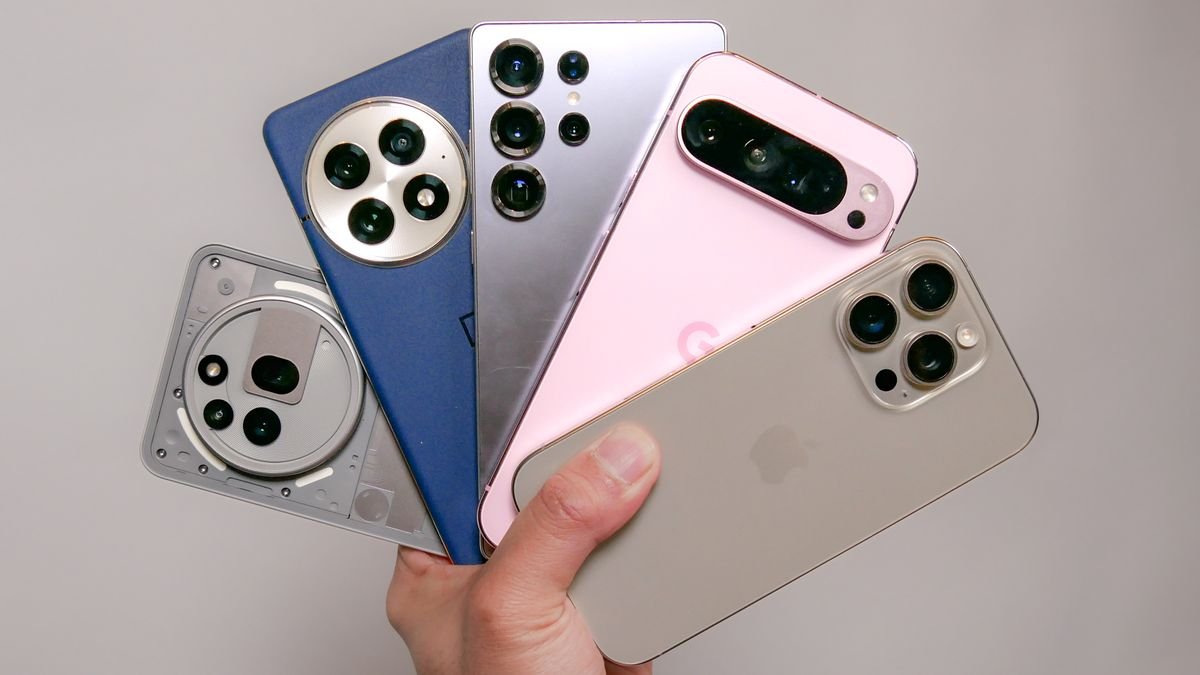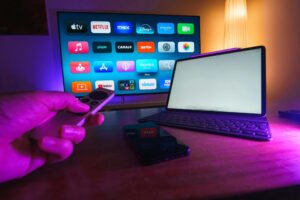Entertainment
Technology
000, 10 uses of smartphone, cheap smartphones, first smartphone with internet, first touchscreen smartphone, mobile price in pakistan 15000 to 20, oneplus smartphones, priceoye, samsung smartphones, smartphones 2025, smartphones infinix, smartphones price in pakistan, smartphones samsung, who invented smartphone touchscreen
Admin
0 Comments
The Dark Side of Smartphones: Hidden Impacts You Should Know
Smartphones are everywhere. They wake us up, guide us, entertain us, and sometimes even decide how we spend our time. They are tiny, powerful, and incredibly useful. Still, they carry a load of hidden effects that many of us miss until those effects become serious.
This article looks at those impacts plainly and honestly. I will share examples people recognize, simple science where it matters, and practical steps you can try today.
The quiet strain on the mind
Do you ever feel tired without knowing why? Sometimes the reason is not physical. It is the constant pull of a phone. Notifications arrive like small nudges. Each one asks for attention. It may be a message, a news alert, or a new like on a photo. These nudges interrupt whatever you were doing. Over time, they build pressure that never fully goes away.
Social media makes this worse. We scroll through curated moments. We see successes, celebrations, and perfect photos. We forget these are snapshots, not whole lives. The habit of comparing our messy routines to polished posts is emotionally draining. Young people report this most, but adults feel it too. The mind gets caught in a loop. It wants approval and quick rewards. That loop wears you out.
Add to that the expectation of immediate replies. Work messages, family texts, and group chats can make you feel always available. When you are always on, real rest does not come. Enough people now talk about anxiety linked to being digitally connected all the time. The connection that should help us ends up stressing us.
Sleep, the hidden casualty
Think you sleep well while keeping your phone nearby? Think again. The blue light emitted by screens deceives your brain. It signals that it is daytime even when it is night. That confuses the chemical signals that prepare your body for sleep. As a result, falling asleep takes longer. The sleep you do get is often lighter and less restorative.
Worse, many of us scroll in bed. What starts as a quick check turns into half an hour of random videos or worrying news. That habit puts stress on your head right before the time you need to be calm. Dreams and deep sleep phases get interrupted. Over weeks and months, this adds up. You feel slower during the day. Memory and decision-making weaken. Health risks grow.
There is a simple fix. Try leaving your phone outside the bedroom or using a basic alarm clock. No apps, no late-night updates, just silence when you want to sleep. It sounds small, but it works for many people.
The body pays too
Phones are small, yet they change how we hold ourselves. Looking down for long periods pulls the neck forward. Muscle strain. Pain builds up slowly. Doctors now use a plain term for this: text neck. It begins with stiffness and ends, sometimes, with chronic back issues if ignored.
Eyes also suffer. Staring at a tiny screen makes them tired. They dry out. Vision may blur after long sessions. Headaches follow. These are not dramatic problems at once, but they do reduce the quality of daily life. For children, whose eyes are still adjusting, long screen hours can be especially problematic.
Then there are repetitive motions. Constant tapping and swiping can inflame tendons. Thumbs and wrists feel sore. What began as minor discomfort may grow into a long-term issue if you do not rest.
Privacy is not what it used to be
When you use an app, you leave a trail. That trail is valuable to companies. They track what you search, where you travel and even what you type. This data helps services, but it also creates a record that is sold or used to target ads. Many people accept this because they enjoy free apps, but the trade-off is real.
Security is another worry. Phishing messages, fake apps, and unsecured Wi Fi networks open doors for theft. A single mistake might reveal passwords or banking details. Many people discover this after the damage is done.
Most unsettling is how little control users often have. Apps update, privacy policies change, and old permissions keep working in the background. What you allowed years ago could still be sharing information today. A mindful habit is to review app permissions, delete unused apps, and update passwords regularly.
The environmental price
A smartphone feels personal, but it arrives from a global chain. Mining for minerals like cobalt and lithium harms landscapes and water supplies in many regions. In some places, working conditions are poor and rules are weak. This is part of the true cost behind a shiny device.
When phones reach their end, recycling rates are low. Old devices pile up in drawers or landfills. Harmful substances leak into the earth and water. Also, the energy that runs data centers for streaming and cloud storage is enormous. All these pieces add up into a bigger environmental picture you do not see when you hold the phone.
Choosing to keep a device longer, buying refurbished models, and recycling responsibly reduce the impact. Small changes by many people make a noticeable difference.
Relationships and real presence
Have you noticed people sitting together but living apart? Meals, walks, and family time often happen with heads bowed to screens. This behavior weakens the connection. People feel ignored even when you are physically close. That feeling accumulates.
Technology makes staying in touch easy, but it does not replace presence. Real conversations need attention. Tone matters. Eye contact matters. Quick replies do not build deep bonds. If you want stronger relationships, set times without phones. Try full attention for short periods and notice the change.
The financial drain
A new phone appears every year with a list of small improvements. Marketing makes upgrades feel urgent. Many people replace devices that still work perfectly. Over time, this habit costs more than expected.
Apps and subscriptions add recurring expenses. Free games hook players into micro purchases. Streaming services pile up month by month. All this quietly grows into a significant monthly outlay.
Making a budget for digital spending helps. Keep older devices until they truly slow down. Look for subscription bundles or decide which services you actually use. Financial stress is avoidable with a little planning.
Children and growing up online
Children learn from play, from faces, and from unstructured time. Smartphones change that. Screens may teach some skills, but they also shorten attention span. A child who gets used to constant stimulation seeks immediate rewards more often. That makes patience and deep focus harder to develop.
Online risks are real. Cyberbullying, exposure to inappropriate content, and contact with strangers are dangers parents worry about. Guidance, monitoring, and open conversations about online behavior are essential. Limiting screen time and encouraging offline activities balance digital learning with real-world growth.
Parents also set the tone. Children notice if adults choose phones over people. Modeling limited use is often the most effective lesson.
Practical changes that help
You do not need to give up your phone to fix these problems. Try these simple steps.
First, schedule no-phone times. Meals, walks, and the hour before bed are good places to start. Second, use built-in tools to track and limit app use. Many phones offer daily limits and focus modes. Third, make the bedroom a phone-free zone or use airplane mode if you must keep an alarm. Fourth, check app permissions and remove tracking where you can. Fifth, hold onto older devices longer and recycle properly when you upgrade.
Also, try single-tasking. Put the phone away when you do focused work. Let your brain work without interruptions. Your productivity will often improve, and stress will fall.
Small stories, big lessons
An acquaintance told me she realized how much her phone affected her when a child asked her to play, and she checked a message instead. The child looked away and kept asking. That small moment changed her. She started leaving the phone in another room during playtime. She said the change was dramatic. The child brightened. So did their bond.
Another friend fixed his sleep by simply moving his phone from the bedside table to a shelf outside the bedroom. He read a paper book before sleeping and felt more rested within a week. Simple things work.
Conclusion
Smartphones are helpful in ways our grandparents could not imagine. They are also tricky. Their benefits are real. Their hidden costs are real, too. The choice is how to use them in a way that supports your life rather than controls it.
Notice the little ways your phone changes your day. Make one change this week. It might be five minutes without a screen at dinner or turning off notifications for non-urgent apps. Small steps lead to a bigger difference.
Technology should be a tool you control. When you are the one in control, life feels richer, sleep comes easier, and relationships deepen. That is the real goal. Use your device wisely, and it will serve you well.














Post Comment